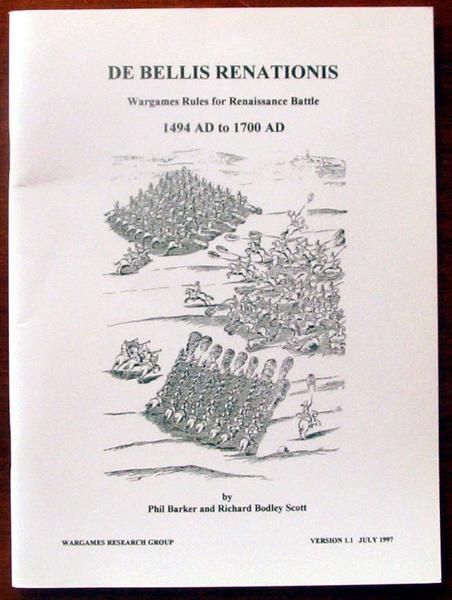De Bellis Renationis (1997) Board Game
De Bellis Renationis, also known as DBR, is a historical miniature wargame that was first released in in 1997. It was designed by Philip C. Barker and Richard Bodley Scott, and is published by the Wargames Research Group. The game is set in the Renaissance period and focuses on battles that took place during that time. It is known for its detailed rules and historical accuracy, making it a popular choice among wargamers who enjoy strategic gameplay.
Game Components of De Bellis Renationis
How To Setup De Bellis Renationis
Setting up the game involves preparing the battlefield, deploying armies according to the chosen army lists, and organizing the miniatures into their respective stands. For example, a pike stand typically includes 4 figures, musketeers have 3, and cavalry generally have 3 figures per stand. Light horse and skirmishers usually have 1 figure per stand. Players can start with minimal figures and expand their collections as they become more familiar with the game.
Gameplay Mechanics and Game Objective
Player Experience
Players of **De Bellis Renationis** often find the game engaging and historically rich, despite some complexities and quirks. The game’s flexibility allows players to focus on specific periods, such as the English Civil War, or explore broader Renaissance conflicts. The rules enable players to use a variety of figure scales and types, making it accessible to those with different collections and preferences.
Pros
Cons
Personal Thoughts on De Bellis Renationis
**De Bellis Renationis** is ideal for historical wargaming enthusiasts who appreciate detailed rules and historical accuracy. It is particularly suited for those interested in the Renaissance period and willing to invest time in understanding the complex mechanics. While it may not be the best fit for casual or beginner wargamers due to its complexity, it offers a rich and rewarding experience for those who enjoy strategic depth and historical immersion.
We are supported by our audience. When you purchase through links on our site, we may earn an affiliate commission, at no extra cost for you. Learn more.

